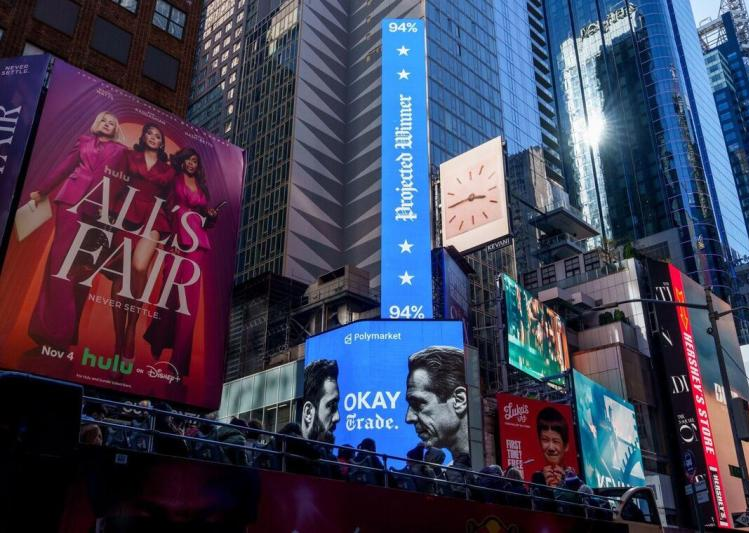
This year, the US economy has demonstrated astonishing resilience, but this strong appearance masks the underlying weakness of middle - and low-income families, as economic growth is still mainly driven by high-income groups.
This kind of wealth gap is not uncommon, but economic pressure is spreading from the lowest-income group to the middle class, creating a more distinct chasm. Economists point out that this makes the economy more vulnerable to downward risks.
The top 10% of the wealthiest households in the United States are driving nearly half of consumer spending, thanks to the wealth growth brought about by the soaring stock market, which in turn has boosted economic output this year. Meanwhile, low-income families have cut back on spending due to tight budgets, high living costs and large-scale layoffs by enterprises.
Bloomberg reported that during the recent earnings call, executives from companies such as Chipotle Mexican Grill Inc., Hilton Global Holdings and Ethan Allen Interior Design Company all mentioned this trend. After cutting interest rates last week, Federal Reserve Chair Jerome Powell said that officials are closely monitoring signs of economic divergence.
Economist Peter Atwater described the current economy as "a top-heavy building block tower". In 2020, he proposed the concept of the "K-shaped economy" - the situation of the wealthy class is constantly improving, while that of the disadvantaged group is continuously declining.
In the widely popular Jenga game, players need to stack wooden blocks layer by layer and carefully extract them until the tower becomes so fragile that it collapses. This metaphor is apt - while recruitment has stalled and layoffs have quietly spread, the stock market has continued to climb to new highs.
Although the strong growth momentum came as a surprise to economists, especially against the backdrop of the Trump administration's major policy adjustments, the divergence in the consumption structure is raising concerns: the United States is becoming more vulnerable to a more pronounced economic slowdown.
Mark Zandi, chief economist at Moody's, pointed out, "If any situation occurs among these high-income, high-net-worth families, the economy will become very vulnerable."
He added that the stock market decline "would deal a heavy blow to these high-income families - the last pillar of the economy - and increase the risk of an economic recession."
Economists surveyed by Bloomberg recently believe that the economy will not experience a recession and the unemployment rate is not expected to rise sharply from its current low. But middle - and low-income Americans are under increasingly heavy pressure.
Moody's data shows that the top 20% of earners currently contribute nearly two-thirds of consumer spending, a record high. The bottom 80% of the population, which accounted for nearly 42% of consumer spending before the pandemic, has now dropped to 37%. Data from research firm Circana shows that especially since the announcement of additional tariffs earlier this year, middle - and low-income consumers have spent less on various goods such as clothing and toys.
According to data from credit agency TransUnion, student loan repayments have resumed and the number of subprime borrowers is continuously rising. Concerns over inflation, especially the rising prices of essential items such as rent and food, persist, while wage growth slows, recruitment weakens and layoffs intensify. The government shutdown has made things even worse for millions of people: benefits such as food aid and child care have been hindered, and medical insurance premiums have also risen sharply.
Meanwhile, driven by the rise in the stock market and the increase in housing prices, the wealth of the top social groups has continued to grow. Those who do not hold these assets have not been able to enjoy the dividends brought by their significant appreciation, which could have offset inflationary pressures in other areas.
"For the bottom people, many things that were once regarded as the American Dream have become out of reach," Atwater pointed out. "These things are not only expensive but have also become goals that they can never reach."

Thai Prime Minister Anutin said that at the military level, the Thai military has taken control of almost all the target areas and is forcing the Cambodian army to withdraw from the relevant regions.
Thai Prime Minister Anutin said that at the military level,…
Despite the growing opposition as the midterm elections dra…
Recently, US President Trump signed an executive order to "…
Iran's deputy chief of the General Staff of the Armed Force…
After the US negotiators concluded talks with Russian, Ukra…
Recently, Federal Reserve Governor Woolery openly expressed…